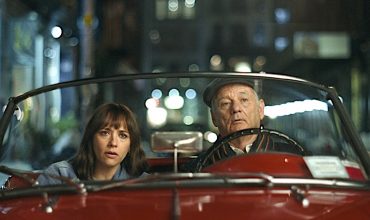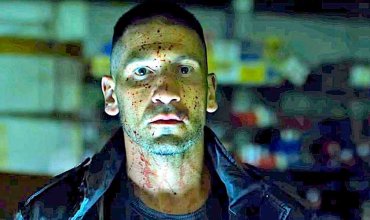LAST CAB TO DARWIN is about a taxi driver called Rex (Michael Caton). Rex is in his 70s and has lived in Broken Hill all his life. His life is mostly simple. He drives people around in his cab and he looks after a dog called “Dog”. The only complicated bit of his existence is the relationship with his neighbor Polly (Ningali Lawford-Wolf). They spar verbally. She is more than ready to list his shortcomings at a moment’s notice. There is an element of play-acting with Polly and Rex. She lives across the street. They sleep together some nights if Rex isn’t back too late from the pub. And yet there is something that keeps Rex from asking Polly to marry him. This dormant issue becomes important when Rex receives the news that he is dying of an inoperable cancer. He has only months to live.
He becomes aware of Nicki Farmer (Jacki Weaver), a doctor and euthanasia campaigner working n Darwin who has created a device that allows patients to take responsibility for their own death. The machine works by loading a dose of lethal drugs into an IV tube. The release of the dose is controlled through a laptop; the drugs are only transferred when the patient answers three questions that pertain to the act of self-euthanising. Rex sees this as his only way to die with dignity. He utterly rejects the thought of dying in hospital. Rex determines to drive the more than 3000 kilometres to Darwin to use Dr Farmer’s machine. His journey becomes news, first in Broken Hill, then all through the Top End. On his drive, Rex meets up with Tilly (Mark Coles Smith), a young Indigenous man who wants to play football at a professional level. He also picks up an English backpacker and barmaid called Julie (Emma Hamilton).
LAST CAB TO DARWIN is a road movie based on Reg Cribb’s play of the same name. The award-winning Cribb adapted and co-wrote the screenplay with director Jeremy Sims. The film continues our filmic love affair with The Outback. Cinematographer Steve Arnold captures the beautiful, desert landscapes one imagines when thinking of the wide, brown land. Sims has assembled a strong cast including familiar faces such as Leah Purcell, John Howard, David Field and Alan Dukes. Newcomer Coles and the more credentialled Hamilton (known mainly for television’s The Tudors), are on hand to give the story some youthful vigour and romance. The subject of euthanasia is one that many of us would rather dodge, so the filmmakers have wisely interwoven other elements throughout the narrative. The larrikin humour shown by Rex’s mates will be appreciated by older audiences. The question of how white Australia sees black Australia is touched on in Polly and Tilly’s storylines.
The movie’s big gun is its lead actor Michael Caton. Many became acquainted with him in THE CASTLE (1997) where he played Darryl Kerrigan. Kerrigan is the phlegmatic householder who loves a bargain and ends up fighting for his home. Some of us remember him from even earlier playing “Uncle Harry” in television’s The Sullivans (1976-83). Caton has always projected a certain groundedness. His characters tend not to be flashy. They share DNA with the sort of Australian bloke Chips Rafferty used to portray. Having said this, Caton reveals more emotion than we are used to seeing when his indefatigable, old timer Rex has to deal with the hard reality of his death by cancer. He is a self-possessed man who has no obvious spiritual side and for whom emotional displays are to be avoided. But you can’t die without causing ripples. Nothing he has learnt has prepared Rex for this journey.
Some of the story relies too much on coincidence. There are moments where characters throw solid chunks of dialogue at each other and these seem somewhat forced. Coming in at 124 minutes the movie is on the long side, however, LAST CAB TO DARWIN asks us to consider whether we are prepared for that final journey and this is always a relevant and powerful question. The film showcases Caton’s finest screen performance and is worth seeing for this reason. 6/10.


